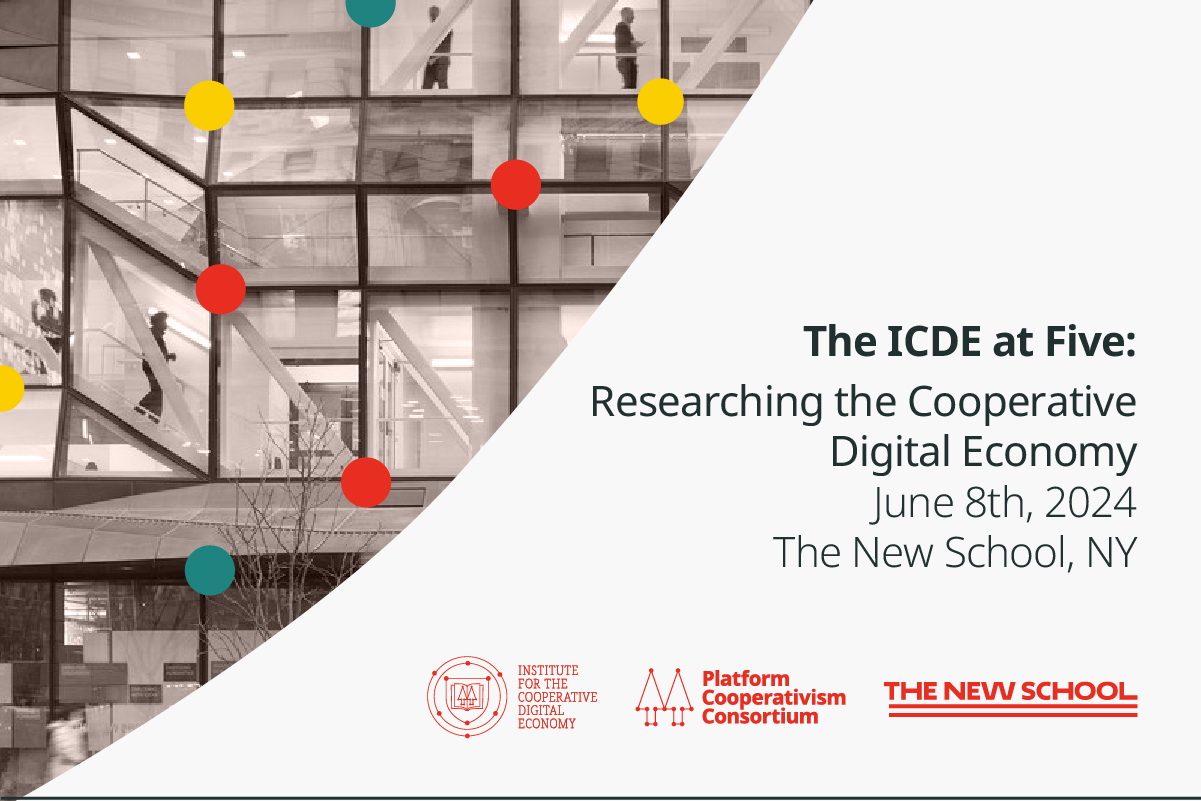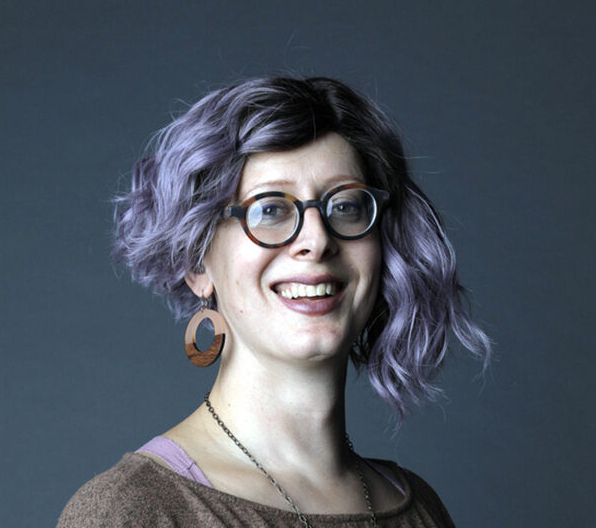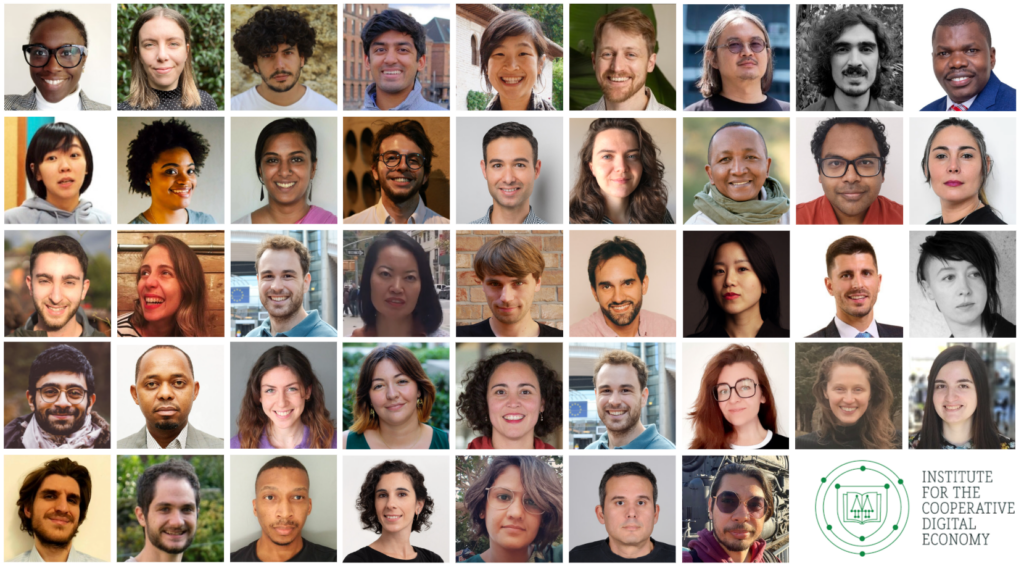Symposium June 8th at The New School

The New School’s ICDE at 5
Register here to reserve your seat
The Institute for the Cooperative Digital Economy (ICDE) at The New School in New York City is celebrating its fifth anniversary with a symposium on June 8th and 9th. This gathering is an important event for current and former fellows worldwide, including Ph.D. students, junior faculty, and postdocs, who focus their research at the intersection of cooperative principles and the digital economy.
The global rise of platform cooperatives and related businesses has underscored the need for informed research to guide policymakers, cooperatives, and foundations. The cooperative digital economy is an under-researched area in fields such as anthropology, political science, sociology, history, and economics. This emerging field is closely linked with labor studies and cooperative studies. In business schools, this field of study is situated in the areas of finance, entrepreneurship, and organizational studies. In law schools, the pertinent areas are governance and corporate structure. The ICDE is dedicated to addressing these research gaps by offering practical and theoretical insights, and policy analysis.
Despite the growing importance of the rapidly evolving fields at the intersection of cooperative principles and the digital economy, along with related areas, this sector often encounters limited support in academic settings. Therefore, this symposium not only serves as a critical forum for advancing research but also aims to focus our research agenda and advance an intellectual community dedicated to this sector.

As a highlight speaker, we will welcome Sasha Constanza-Chock.

Our Fellows:
Akkanut Wantanasombut (Chulalongkorn University), Alejandro Fortuny-Sicart (University of Vigo), Amelia Evans (Harvard Law School), Andrea Peña Calvin (Complutense University), Anne-Pauline de Cler (Sciences Po), Cecilia Muñoz Cancela (University of Buenos Aires), Denise Kasparian (University of Buenos Aires), Eve O’Connor (Harvard University), George Oates (London), Harinjaka A Ratozamanana (University of Provence, Aix-Marseille I), Jad Esber (Harvard Business School, Cambridge), Jared Mark Matabi (Cooperative University of Kenya), Jonas Pentzien (Berlin Social Science Center), Josie West (Kings College), Katarzyna Cieslik (University of Manchester), Katya Abazajian (University of Texas at Austin), Lokyung Wong (Hong Kong), Louis Cousin (Laval University, Canada, and Paris-Saclay University, France), Maïmonatou Mar (University of Bordeaux), Michelle Lee (Northwestern University), Minsun Ji (University of Colorado Boulder), Mohit Dave (University of Delhi), Morshed Mannan (European University Institute), Mosa Tsay (The Juilliard School), Philemon Poux (University of Paris), Pietro Ghirlanda (University of Milan), Rafael Zanatta (University of São Paulo), Sadev Parikh (Georgetown University Law Center and Harvard Kennedy School), Salonie Hiriyur Muralidhara (London), Santosh Kumar (University of Turin), Sain Lopez (Mondragon University), Priyanka Stefan Ivanovski (Cornell University), Francis Mwongla Mikwa (Cooperative University of Kenya), Shaked Spier (University of Twente), Stefano Tortorici (Scuola Normale Superiore), Udayan Tandon (University of California, San Diego), Vangelis Papadimitropoulos (University of Athens), Vera Vidal (Open University of Catalonia).
Acknowledgment of Sponsorship
This ICDE symposium was made possible through the support of the Robert L. Heilbroner Center for Capitalism Studies, the Zolberg Institute on Migration and Mobility, the Milano School of Policy, Management, and Environment, and the Institute on Race, Power, and Political Economy, all at The New School. We are also grateful for the sponsorship provided by CCA Global, whose contribution has been instrumental in bringing this event to fruition.
The New School
The New School, situated in New York City, was established in 1919 as The New School for Social Research, emerging as a center for academic freedom and intellectual inquiry, offering an alternative to traditional academic norms. This institution is known for its emphasis on the liberal arts, social sciences, and design, with the Parsons School of Design being a notable part of the university. Throughout its history, The New School has been recognized for its innovative teaching methods and active engagement in social and political movements during the 20th century. It has expanded to include a diverse range of academic disciplines. The faculty at The New School has included numerous prominent figures, such as philosopher Hannah Arendt, economist Thorstein Veblen, and political theorist Leo Strauss.
The Platform Cooperativism Consortium (PCC)
The Platform Cooperativism Consortium (PCC) PCC is a collaborative hub fostering global growth in the cooperative digital ecosystem through movement-building, policy analysis, education, and resource sharing. Explore our Resource Library on the cooperative digital economy. Discover active projects in our Directory. To understand our principles better, watch a short talk where we elaborate on our work. The Consortium maintains an extensive network of 876 speakers, and 60 partner organizations in 45 countries and convenes an annual conference that has previously been held in Thiruvananthapuram, Rio de Janeiro, New York City (six times), Hong Kong, and Berlin. In 2024, the conference will be held in Mombasa, Kenya. Our impactful conferences reached at least 250,000 people to date.
The Institute for the Cooperative Digital Economy (ICDE)
The ICDE has contributed to a wide range of discussions, including in Cooperative, Organizational, and Labor Studies, Industrial Organization, Strategy, Entrepreneurship, Democracy at Work. The institute has also played a key role in helping establish the academic subfield of SolidarityTech through the research sprints and fellowship papers authored by our Fellows spanning from 2019 to 2023. Our work has had a notable influence on the policy thinking and vision of major political parties in several countries. A policy paper showcases our approach to municipal policy. Our current Fellows, Affiliated Researchers, Faculty, and members of the PCC Council of Advisors bring a wealth of knowledge and expertise to the ICDE, enriching the intellectual life of the institute. More information about the ongoing work of our Fellows can be found on our blog.
Our Policy Work
Our work has significantly influenced policy-making across various countries including the UK, US, Brazil, Germany, the UAE, and India (specifically Kerala), and has even been acknowledged by legislative bodies such as the Argentine Congress, which reflects a growing global interest in the principles and application of platform cooperatives. Recently, we spoke on the social and solidarity economy at the OECD high-level summit in Paris. Our impact on policy can be seen through citations of platform cooperatives and my writing in UN Secretary General reports on cooperatives (2021, 2019), and recent OECD policy papers (local community development, employment) and European Commission policy reports (mapping the landscape of data intermediaries).
Additional EU foci in this area have been the care sector, and more broadly, employment opportunities for European youth. Platform cooperatives are also being discussed in the context of the proposed Platform Work Directive in the EU. Brazilian President Luiz Inácio Lula da Silva champions public-cooperative hybrid models for platform co-ops (2022, 2023). The legislative proposal for model law for work cooperatives in Argentina includes platform cooperatives (2023). The UAE’s Federal Decree-Law No. 6 of 2022 promotes the formation and expansion of platform cooperatives (2022). In Kerala, India, the “Comprehensive Programme for Employment of the Educated Unemployed” was launched, targeting the creation of 4,000 platform cooperatives to bolster job opportunities and cultivate a more equitable gig economy in the region (2021). The Digital Democracy Manifesto by the Labour Party included policies on platform cooperatives (2016). US Senator Kirsten Gillibrand has invited me to draft a policy brief and subsequent legislation to support platform cooperatives. We’ve also shared my research at high-level gatherings including the G7 Labor Meeting in Turin, the US State Department, G20, and Italian Parliament, as well as with Andrea Nahles, then the leader of Germany’s Social Democratic Party, at SPD headquarters.